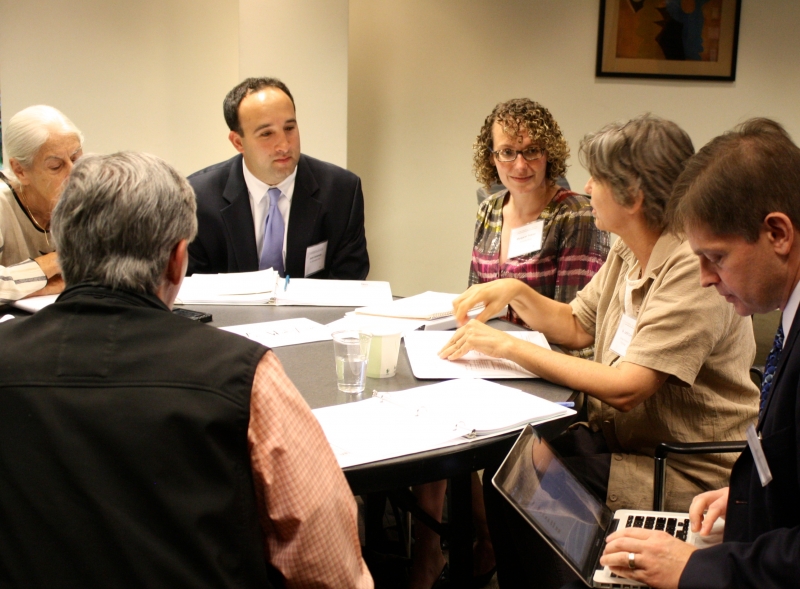Overview of Workshop Proceedings
September 22-23, 2014, Washington, DC
Highlights of the workshop proceedings are described below and in the associated links. The complete workshop proceedings document is available in downloadable PDF format here.
Workshop Day One. After welcoming remarks by John Cruden from ELI and David Verardo from NSF and an introduction by ELI Senior Attorneys Jay Austin and Kathryn Mengerink, participants engaged in a round of introductions.
The first workshop panel, entitled Communicating Uncertainty: Three Perspectives, was moderated by ELI President John Cruden and featured remarks from Andrew Rosenberg of the Union of Concerned Scientists, Michael Traynor of Cobalt Law, and Seth Borenstein of the Associated Press. (Borenstein PowerPoint presentation is available here.) Following the presentations, Mr. Cruden moderated a Q&A session with the panelists and audience.
Questionnaire Results. Kathryn Mengerink of ELI then presented the results of the pre-workshop questionnaire and provided an opportunity for workshop participants to provide additional insight.
Study Topics and Breakout Groups. Following the questionnaire discussion, David Verardo of the NSF Paleoclimate Program introduced and moderated the second workshop panel, which presented three case study topics. First, Paul Huttner of Minnesota Public Radio delivered a presentation on climate change, extreme weather events, and uncertainty. (Huttner PowerPoint presentation is available here.) Next, David Bussard of U.S. EPA spoke about cumulative chemical exposure, environmental justice, and uncertainty. Finally, Marcia McNutt of Science magazine delivered a presentation on hydraulic fracturing and uncertainty. (McNutt PowerPoint presentation is available here.) Following the presentations, Dr. Verardo moderated a Q&A session with the panelists and audience.
Workshop participants then divided into five self-selected breakout groups (three on climate, one each on chemical exposure and hydraulic fracking) to discuss the case study topics.
 Participants discuss the role of uncertainty in climate and weather science.
Participants discuss the role of uncertainty in climate and weather science.
The breakout groups discussed and reported back their answers to three questions:
(1) What ethical and communication challenges relate to this issue from the scientific, legal, and journalistic perspectives?
(2) What steps can be taken to overcome these challenges?
(3) Can scientists, lawyers, and journalists overcome these challenges in a collaborative way? If so, how?
Workshop Day Two. Kathryn Mengerink opened the second day by identifying the key challenges and potential solutions that had been discussed the previous day.
Breakout Groups by Profession. Next the participants divided by disciplines, and Scott Schang of ELI and David Verardo of NSF charged these breakout groups to renew their focus on the ethics of communicating scientific uncertainty.
They asked the participants to think about three questions:
(1) How do the ethics of my profession affect how we communicate about scientific uncertainty?
(2) How can we address the ethical or professional constraints on communicating scientific uncertainty?
(3) What ways can we collaborate across professions to accomplish these objectives?
Participants discussed these questions before reporting back to the plenary.
Wrap-Up. The workshop finished with a plenary wrap-up session, followed by concluding remarks from David Verardo and John Cruden.